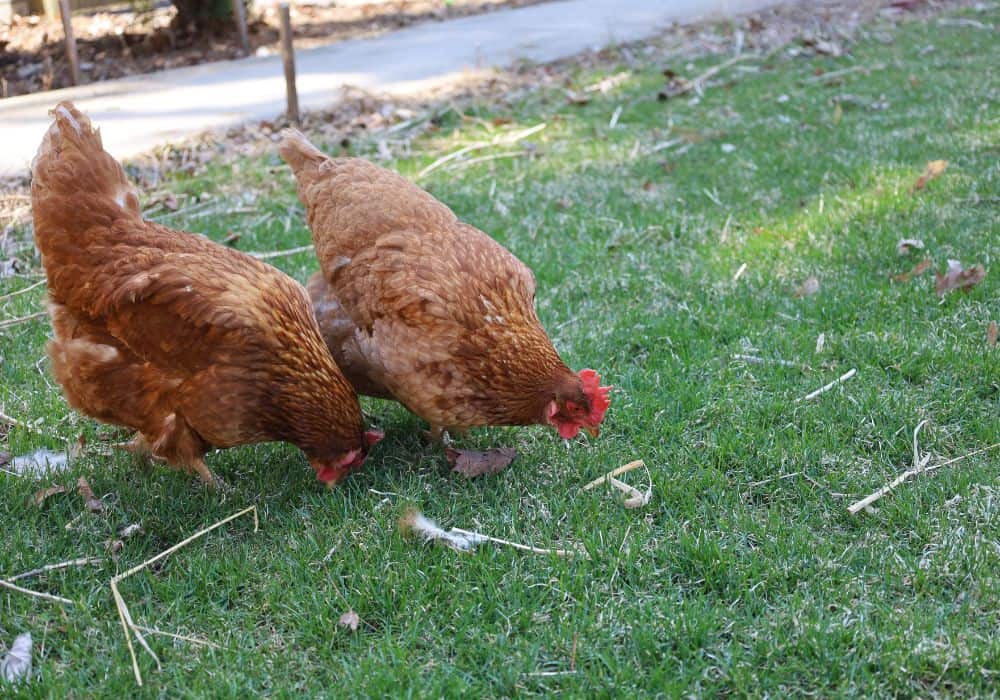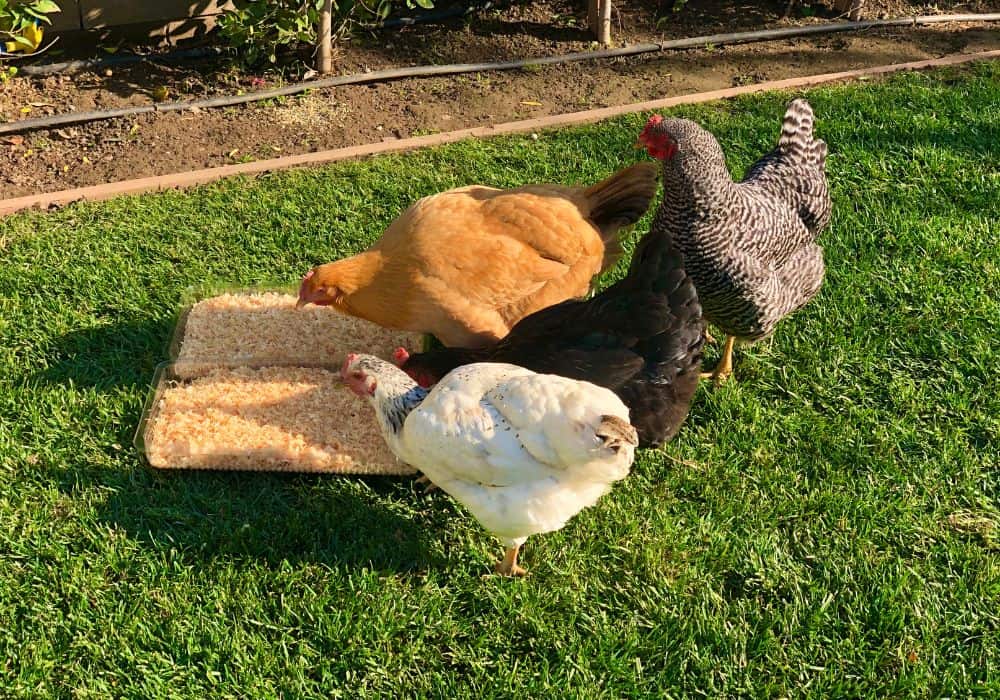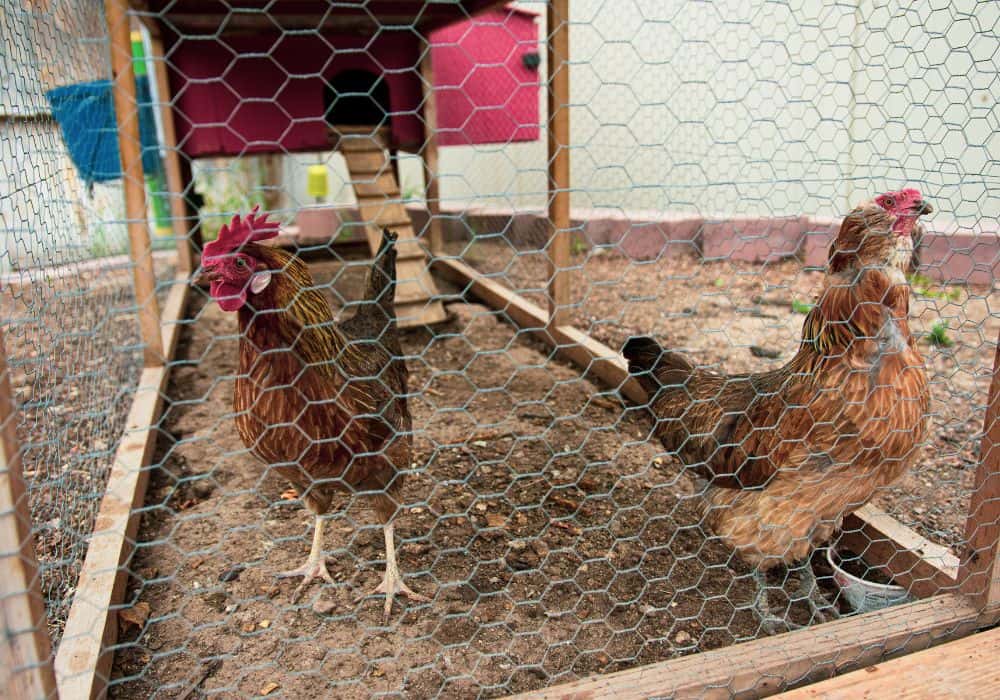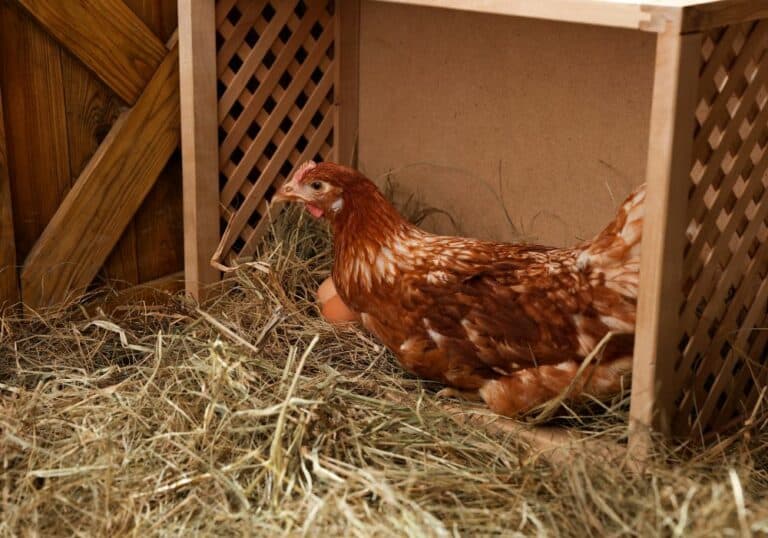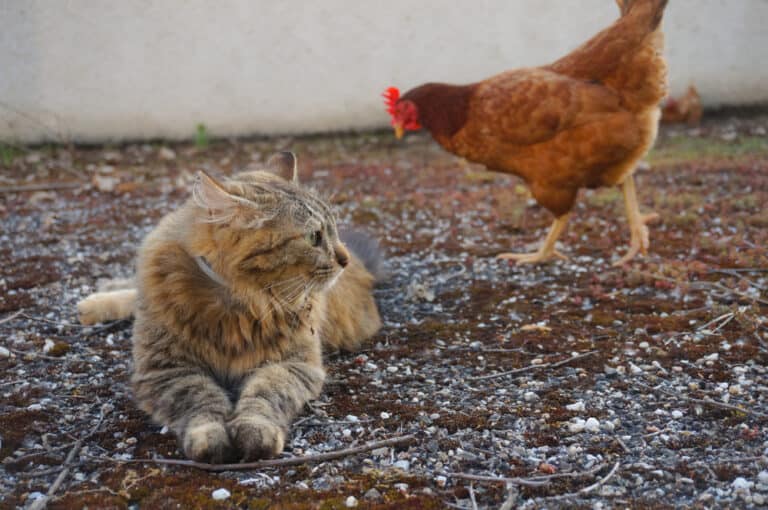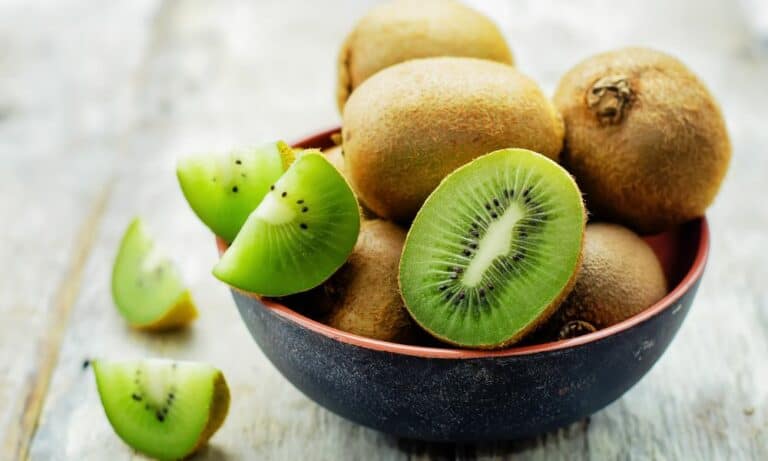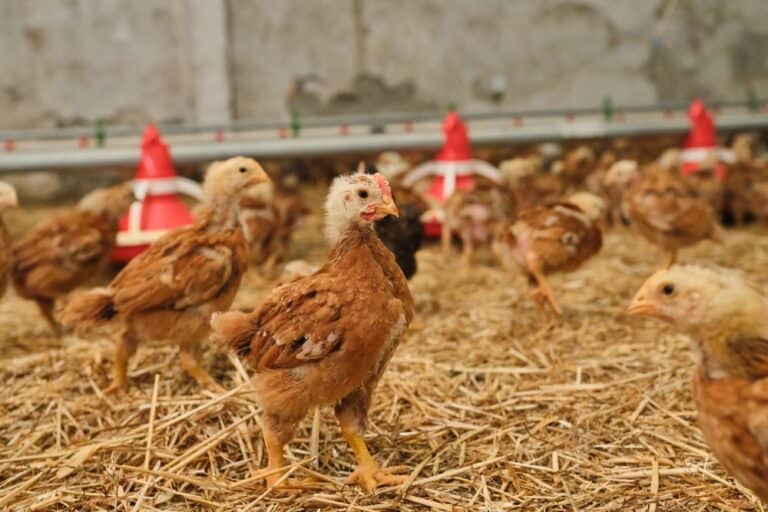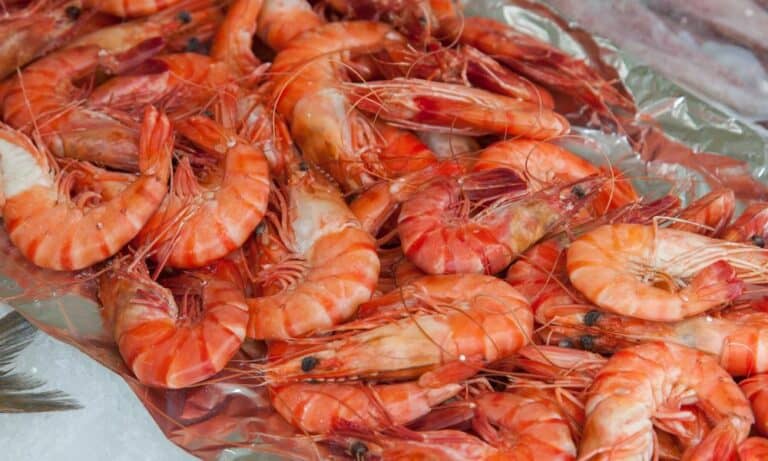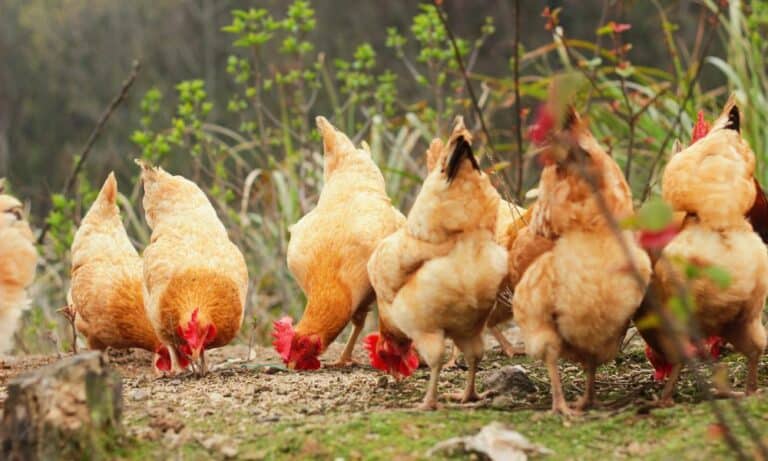Do you own a backyard chicken coop? If so, have you been feeding your chickens kitchen scraps… and also happen to be a coffee aficionado? Or maybe, you’ve heard that infamous myth of feeding your chickens coffee grounds so they lay more eggs?
Research shows backyard chickens consume around 1.6 pounds of household food scraps every week. In doing so, not only do they benefit the environment, and the owner, but it benefits them!
But, owners fear they might unintentionally feed harmful substances to their flock, like coffee grounds. So, whether it was fear of harming your flock or curiosity about what to include in their diet that led you here, I’m here to help.
Read along to find the answers to all your “Can chickens eat coffee grounds?” questions!
Are Coffee Grounds OK for Chickens?
For many animals, coffee grounds sound like appropriate food items. However, when it comes to chickens, things get confusing. Many people even test whether coffee does any harm to the chickens or not by feeding them caffeine substances!
Unfortunately, that is one of the biggest mistakes a backyard chicken flock owner can make. Caffeine ingestion can make your chickens sick and even potentially kill them. That’s because it is a type of methylxanthine, which is a compound toxic to chickens.
Since used coffee grounds can also harbor 3.59 to 8.09 milligrams of caffeine, they are very strong sources of caffeine. Resultantly, the chances of death through ingestion of coffee grounds go significantly up than in the case of chocolate or tea ingestion.
Studies show that caffeine toxicity impacts chicken to such drastic levels because it hinders calcium absorption. So, when a chicken eats coffee grounds, their immune system is simultaneously attacked by toxins.
The chickens will then develop a condition called hypocalcemia. They also start losing feathers and become agitated at an alarming rate. Similar to the effect of excessive caffeine consumption on humans, these birds can develop restlessness and anxiety.
Eventually, the toxins also attack their central nervous, respiratory, and circulatory systems, causing them to shut down. Of course, the process takes time—it will not kill your flock unless they consume a considerable amount.
If the consumption was less than that, you still have a few days to save your chicken. In even smaller amounts, the chicken may survive more than a few days, but not for very long. Exposure over time causes increased harm.
To help you understand why, let me walk you through an experiment conducted in 1944. That year, due to the shortages caused by war, scientists experimented with incorporating coffee grounds with chicken feed.
The experiment was conducted on two groups of chickens. One group’s diet was supplemented by coffee grounds and the other group’s with oat hulls. The latter’s health thrived, but the group with coffee grounds suffered from stunted growth.
So, they didn’t die but were also of any benefit to the farmers. Also, apart from caffeine, the bitterness and acidity of the grounds further harm the chickens. That’s why even decaffeinated beans are not safe for your flock.
Long story short: coffee grounds in any amount or in any form are neither OK nor safe for your chickens.
Symptoms of Caffeine Toxicity in Chickens
Being aware of all the devastating consequences of caffeine consumption is good, but being prepared to deal with such a situation is even better!
If, by chance, your chicken ingests a fatal quantity of coffee grounds, it will start showing symptoms of caffeine toxicity. You must look out for restless, agitated chickens with rapid heart rates.
Other common symptoms include digestive issues like vomiting and diarrhea, panting, hyperthermia, and seizures. Some chickens may also exhibit lethargic behavior and refuse to move around their pen.
Further on, you should pay attention to respiratory problems. If you notice anyone in the flock coughing, sneezing, or wheezing, do not take it lightly. You also want to check your feathery friends for physical injuries, as it can be an indication of caffeine ingestion.
If you notice digestive issues, immediately remove all sources of coffee grounds or caffeine. Provide sufficient water and electrolytes, but monitor the intake. Make sure the chicken doesn’t consume too much or too little food and water.
Lastly, in the unfortunate circumstances where you notice any of these symptoms, take your chicken to the vet right away. Even if you’re unsure, about coffee grounds consumption vet consultation and assessment are still important because it could be that, or something worse. Better be safe than sorry!
Will Chickens Avoid Coffee Grounds?
While some animals have a natural nose for which food to avoid and which food to consume, chickens do not possess this quality. The strong scent of coffee grounds does not appeal to chickens, and they are naturally not attracted to it.
But, if it’s mixed into their feeds directly, they will eat it. Or, if they come across it while roaming around, you can’t say for sure if they will eat it or avoid it. There’s no guarantee for either case.
Overall, to ensure the safety and health of your flock, make sure they have no access to coffee grounds.
Should you use Coffee Grounds for Compost?
In the experience of some farmers, using coffee grounds for compost has had no effect on their flock. Instead, they managed to provide rich nutrients and an earthy texture to their compost.
But if you allow your flock to free range, this can be a dangerous practice. Only spread compost with coffee grounds in chicken-free areas. If that’s a difficult thing for you, or if you’re short on space there are two ways to go about it:
Number one, avoid coffee grounds altogether. Number two: install a high fence around the coop and make sure each and every chicken in the flock stays away from the area with the compost bins.
Are Coffee Grounds OK For Bedding in Coops?
Yes and no— it really depends. Chicken coop bedding made from coffee grounds has texture, scent, and other positive qualities. For example, they absorb moisture and reduce mess. All of this makes it a well-suited coop bedding as well as a litter choice.
But caffeine still poisons your chickens, and the risk of ingestion is still there. Personally, I would suggest going with other alternative materials to line chicken coops. Always better to err on the side of caution than to do something that costs a life.
Examples of other comparatively cheap bedding materials include wood shavings, straw, hay, sand, or pine for a safer chicken coop. With these, there’s always a guarantee that you will not be left with a moldy, stinky mess at the end of the day.
However, if you really must proceed with bedding made of coffee grounds, there are seemingly safe options available. For example, the Recycled Coffee Animal Bedding by Grounds.
Grounds ensure bedding is made from 100% recycled coffee beans, making sure the caffeine level is down to as little as possible. However, they claim their bedding has no caffeine at all. They pass the grounds through tripe filters after cold brewing.
I think that’s a bit of hyperbole there because there still would be some amount of caffeine present. But, so far, the product has had positive reviews only. So, it’s somewhat safe to experiment with.
Also, recycled coffee beans mean the amount of caffeine present would not be fatal to the chickens in case of ingestion. Still, if you see any symptoms of caffeine poisoning, rush to your vet and abandon that bedding!
What To Feed Your Chickens Instead
Leftover food– the right kind– is very nutritious and healthy for chickens. But which ones are the right ones, and which ones should you avoid? Here’s a list of things you can and should feed them:
- Grains: All types of grains, including barley and wheat, have lots of nutrients, which processed feed may lack! Plus, it keeps them physically active as they have to forage on the floor to eat it.
- Oats: Raw or cooked, oats are a rich source of vitamins, protein, and antioxidants for your feathered friends. Plus, they strengthen the chicken’s immune system!
- Cooked Meat: Avoid raw meat at all costs because you don’t want your chickens to be exposed to the risk of salmonella. Feed your flock cooked meat instead— it provides healthy protein. You also want to steer clear of fatty meats and ensure that it’s cut into small pieces so the meat is easy to digest.
- Cheese: A rich source of protein, calcium, magnesium, and various vitamins, cheese is not only safe but also a healthy addition to a chicken’s diet. It will strengthen their bones and prevent physical deformities.
- Fruit and Vegetables: Lastly, you can feed your chickens fruits and vegetables like corn, tomatoes, and bananas. They provide the same variety of minerals and vitamins, like fiber, to animals that they provide to us.
Some foods you should avoid feeding your chickens apart from coffee grounds include chocolate, raw eggs, uncooked rice, avocado skin, sweets, dried beans, and expired food. If you need an even more comprehensive take on the topic, watch this:
Other Ways To Utilize Coffee Grounds
Even though you can’t use them as chicken feed, you can use coffee grounds for other purposes on your farm. You just have to be sure that it’s not within the reach of the chickens, and take appropriate measures. Including composting, here’s how to use utilize coffee grounds in other ways:
1. Fertilizers
Coffee grounds contain nutrients like nitrogen, calcium, potassium, iron, magnesium, and chromium. These nutrients help promote healthy soil and plant growth. Therefore, coffee grounds serve as excellent fertilizers.
In fact, they give plants and crops like blueberries, lilies, carrots, and radishes an extra boost. That is why some companies have begun selling coffee grounds as fertilizers too. Coffee Ground fertilizers are now readily available at places like Tractor Supply Stores.
To use these beans as fertilizers, mix them with dry materials and sprinkle them onto the soil. Try not to overuse them because their acidic properties can increase soil acidity. Instead of buying, you can also use the coffee you consume.
Watch this YouTube Short to learn more about the process:
2. Pest & Insect Repellent
In recent years, people have discovered that coffee grounds can also serve as insect and pest repellents. Layer them on the top of the soil, and they do the job perfectly well! The strong smell discourages pests from coming near your plants and repels insects altogether.
3. Composting
As mentioned above, coffee grounds work wonders for compost. They help break down organic waste and get rid of the awful waste odor. However, you still want to make sure it is covered and away from the reach of anyone that the coffee grounds or the compost can harm.
4. Scouring
This one helps around the house instead of the farm. Due to the coarse texture of coffee grounds, they work great for scouring. They can help clean stubborn stains from kitchen utensils. However, you must ensure that you thoroughly rinse it out afterward.
Conclusion
The takeaway from this post is that you should never intentionally feed coffee grounds to your chickens. It might not kill your chicken if it consumes only a few granules, but a large quantity and prolonged exposure certainly will.
Symptoms of caffeine poisoning include restlessness, agitation, panting, digestive problems, rapid heart rate, hyperthermia, seizures, lethargy, respiratory issues, and physical injuries. If you notice these symptoms, here’s what to do:
- Remove all sources of coffee grounds or caffeine
- Provide water and electrolytes, and make sure the intake is adequate
- Go to the vet immediately
I hope this post solved all your queries related to the subject. Still, if you have any questions, let me know in the comments!


